Abstract
Using a motorized treadmill the study investigated the effects of the ingestion of 3 g of caffeinated coffee on: the time taken to run 1500 m; the selected speed with which athletes completed a 1-min 'finishing burst' at the end of a high-intensity run; and respiratory factors, perceived exertion and blood lactate levels during a high intensity 1500-m run. In all testing protocols decaffeinated coffee (3 g) was used as a placebo and a double-blind experimental design was used throughout. The participants in the study were middle distance athletes of club, county and national standard. The results showed that ingestion of caffeinated coffee: decreases the time taken to run 1500 m (P less than 0.005); increases the speed of the 'finishing burst' (P less than 0.005); and increases VO2 during the high-intensity 1500-m run (P less than 0.025). The study concluded that under these laboratory conditions, the ingestion of caffeinated coffee could enhance the performance of sustained high-intensity exercise.
Full text
PDF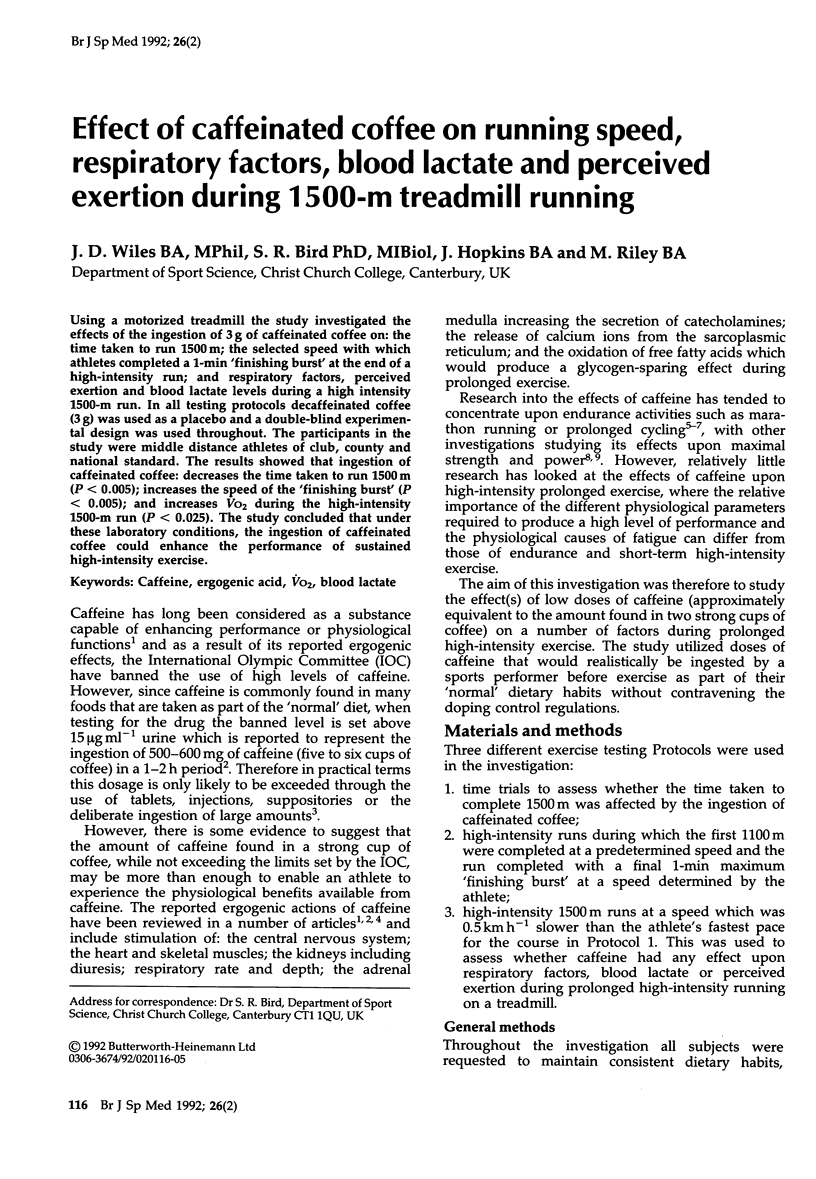
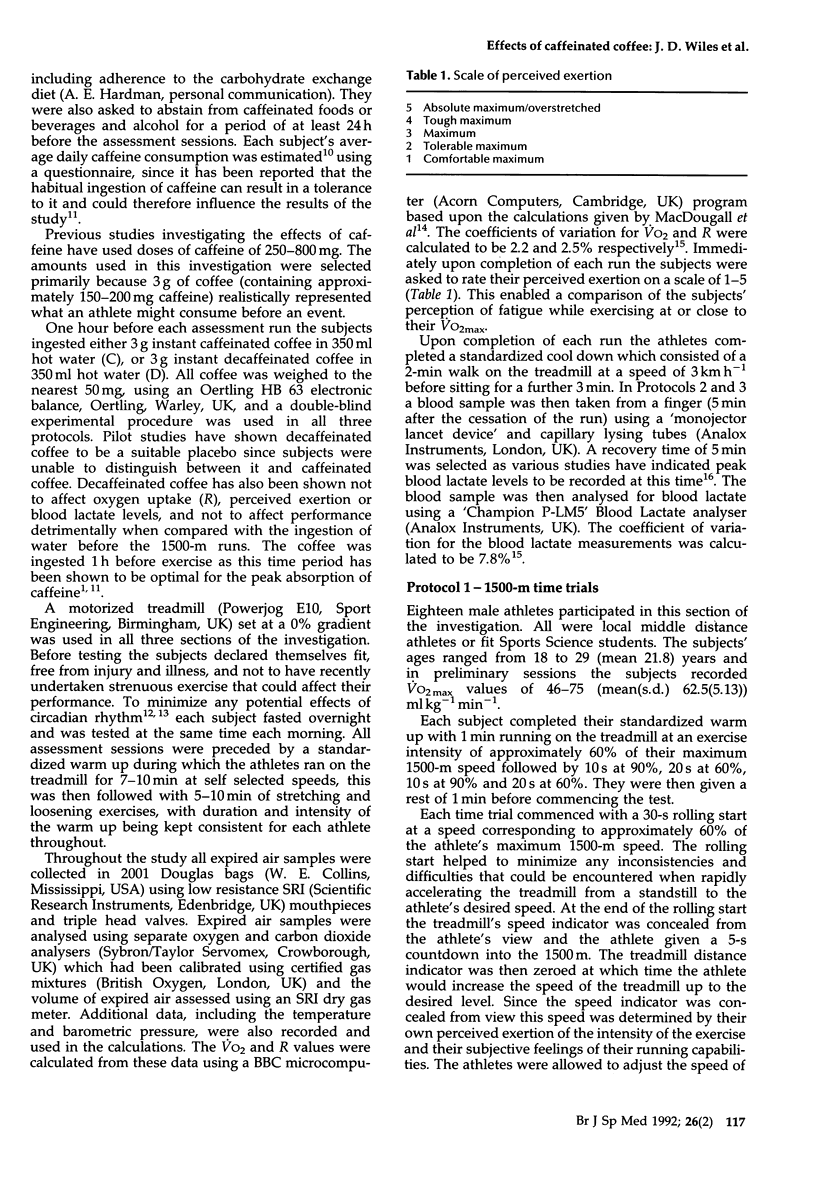
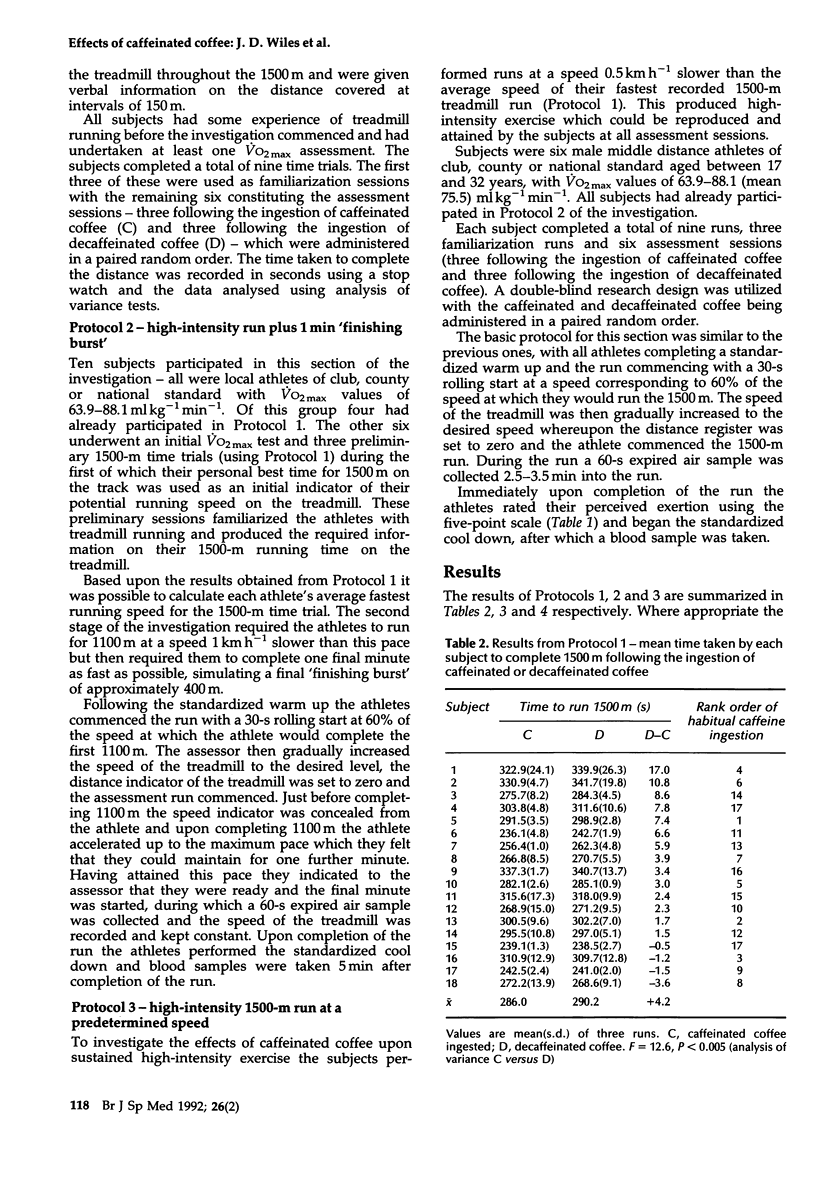
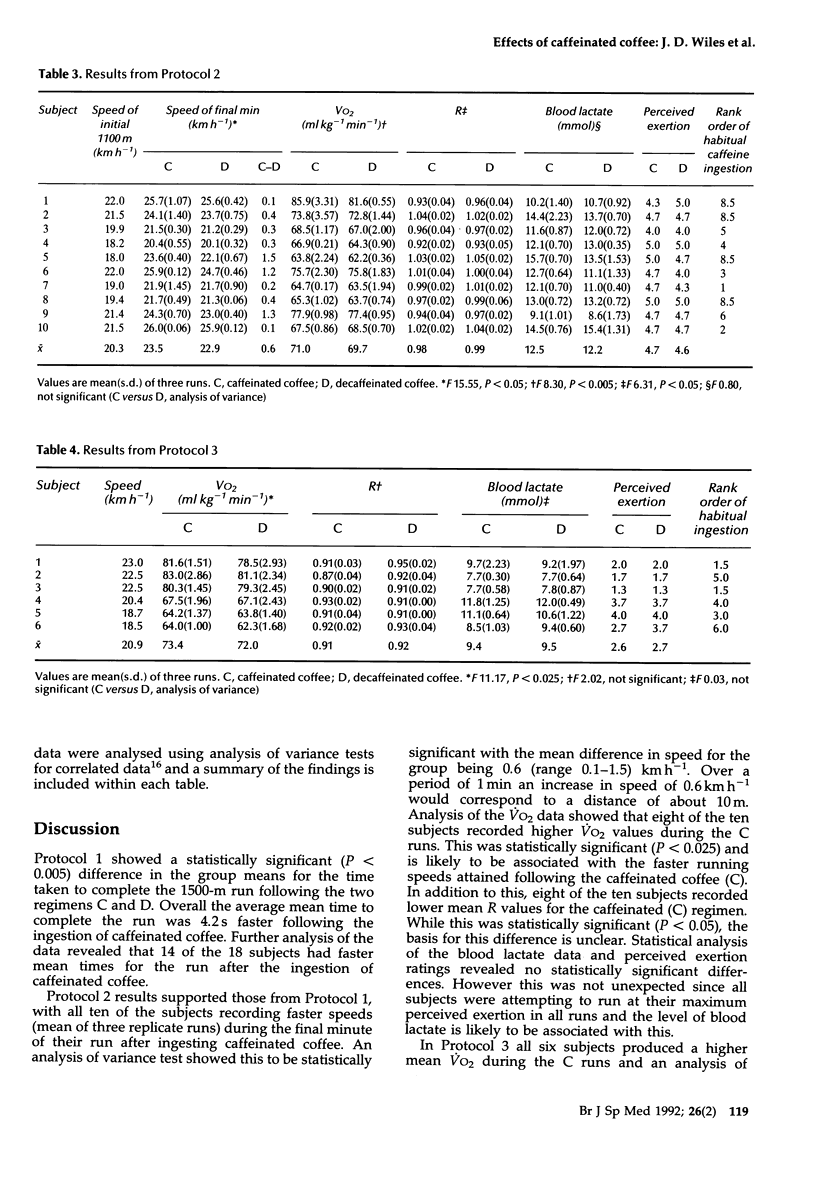
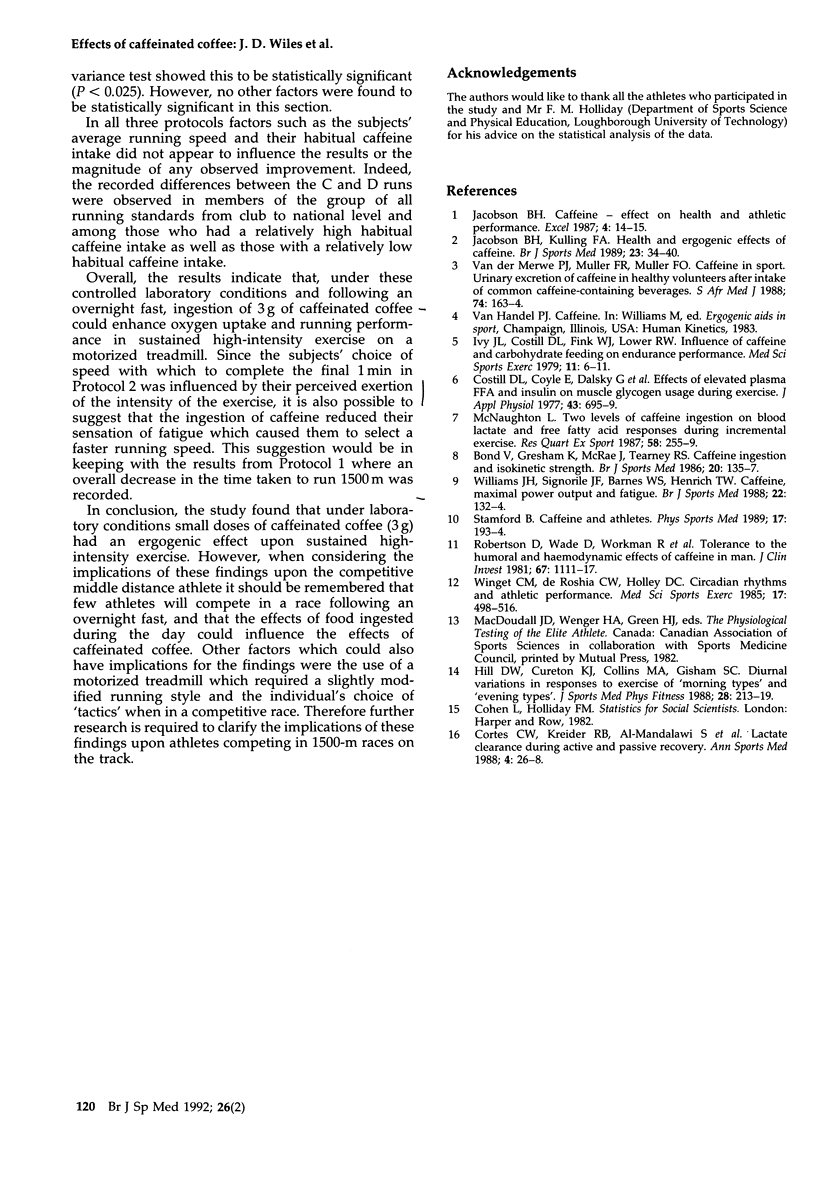
Selected References
These references are in PubMed. This may not be the complete list of references from this article.
- Bond V., Gresham K., McRae J., Tearney R. J. Caffeine ingestion and isokinetic strength. Br J Sports Med. 1986 Sep;20(3):135–137. doi: 10.1136/bjsm.20.3.135. [DOI] [PMC free article] [PubMed] [Google Scholar]
- Costill D. L., Coyle E., Dalsky G., Evans W., Fink W., Hoopes D. Effects of elevated plasma FFA and insulin on muscle glycogen usage during exercise. J Appl Physiol Respir Environ Exerc Physiol. 1977 Oct;43(4):695–699. doi: 10.1152/jappl.1977.43.4.695. [DOI] [PubMed] [Google Scholar]
- Hill D. W., Cureton K. J., Collins M. A., Grisham S. C. Diurnal variations in responses to exercise of "morning types" and "evening types". J Sports Med Phys Fitness. 1988 Sep;28(3):213–219. [PubMed] [Google Scholar]
- Ivy J. L., Costill D. L., Fink W. J., Lower R. W. Influence of caffeine and carbohydrate feedings on endurance performance. Med Sci Sports. 1979 Spring;11(1):6–11. [PubMed] [Google Scholar]
- Jacobson B. H., Kulling F. A. Health and ergogenic effects of caffeine. Br J Sports Med. 1989 Mar;23(1):34–40. doi: 10.1136/bjsm.23.1.34. [DOI] [PMC free article] [PubMed] [Google Scholar]
- Robertson D., Wade D., Workman R., Woosley R. L., Oates J. A. Tolerance to the humoral and hemodynamic effects of caffeine in man. J Clin Invest. 1981 Apr;67(4):1111–1117. doi: 10.1172/JCI110124. [DOI] [PMC free article] [PubMed] [Google Scholar]
- Williams J. H., Signorile J. F., Barnes W. S., Henrich T. W. Caffeine, maximal power output and fatigue. Br J Sports Med. 1988 Dec;22(4):132–134. doi: 10.1136/bjsm.22.4.132. [DOI] [PMC free article] [PubMed] [Google Scholar]
- Winget C. M., DeRoshia C. W., Holley D. C. Circadian rhythms and athletic performance. Med Sci Sports Exerc. 1985 Oct;17(5):498–516. [PubMed] [Google Scholar]
- van der Merwe P. J., Müller F. R., Müller F. O. Caffeine in sport. Urinary excretion of caffeine in healthy volunteers after intake of common caffeine-containing beverages. S Afr Med J. 1988 Aug 20;74(4):163–164. [PubMed] [Google Scholar]


